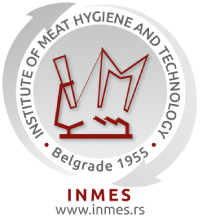Towards delineating butchers’ knowledge base, challenges encountered, and enhancement prospects of meat inspection processes: A cattle slaughterhouse case analysis
Abstract
There is a paucity of relevant literature about what Nigerian butchers know and challenges encountered, especially during cattle meat inspection processes. Butchers, if encouraged to put forward their suggestions so as to improve the meat inspection process, together with their advice to the veterinarians, can serve as (future) enhancement prospects. This study aimed towards delineating the butchers’
knowledge base, challenges encountered, and enhancement prospects of meat inspection processes via case analysis of a cattle slaughterhouse at Nsukka urban, considered representative of many others in Nigeria. A semi-structure questionnaire via interview was administered to 54 butchers, with interview time dependent on their availability and convenience. The butchers, all male (Freq.=100.0%, n=54), largely secondary school educated, most with >5 years of work experience and delivering ≥5 days/week work patterns, were very familiar with slaughterhouse components, clearly understood what meat inspection is and appeared always prepared for the worst outcomes. Butchers (Freq.=98.15%, n=53) considered meat inspection important (p<0.0001, H-adj.=99.22) to increasingly prioritise beef meat and consumer safety. Butchers’ challenges in the meat inspection process include the fear of losing the beef meat, or entire cattle carcass and the financial implications of any loss. Despite some positively (p<0.05) correlated variables, the latter obtained similar odds ratios trends based on the butchers’ years of work experience. The butchers’ acceptance of negative meat inspection outcomes can improve if veterinarians engage more effectively.





